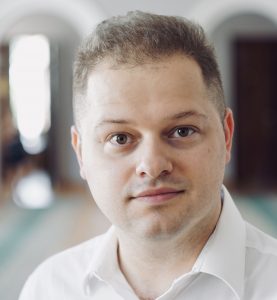Between Scylla and Charybdis: The Ukrainian Orthodox Parish During the War

Andriy Fert is a nonresidential fellow at Institut für die Wissenschaften vom Menschen (IWM) and a PhD candidate at Kyiv-Mohyla Academy.
This post looks at the challenges that the Ukrainian Orthodox Church (UOC), affiliated with the Moscow Patriarchate, faced during the first year of Russia’s full-scale invasion of Ukraine. I do this through the perspective of an ordinary parish priest. To protect his anonymity, I call him “Father Antonii,” which is not his real name. This text is based entirely on my two Zoom conversations with Father Antonii in late January 2023.


